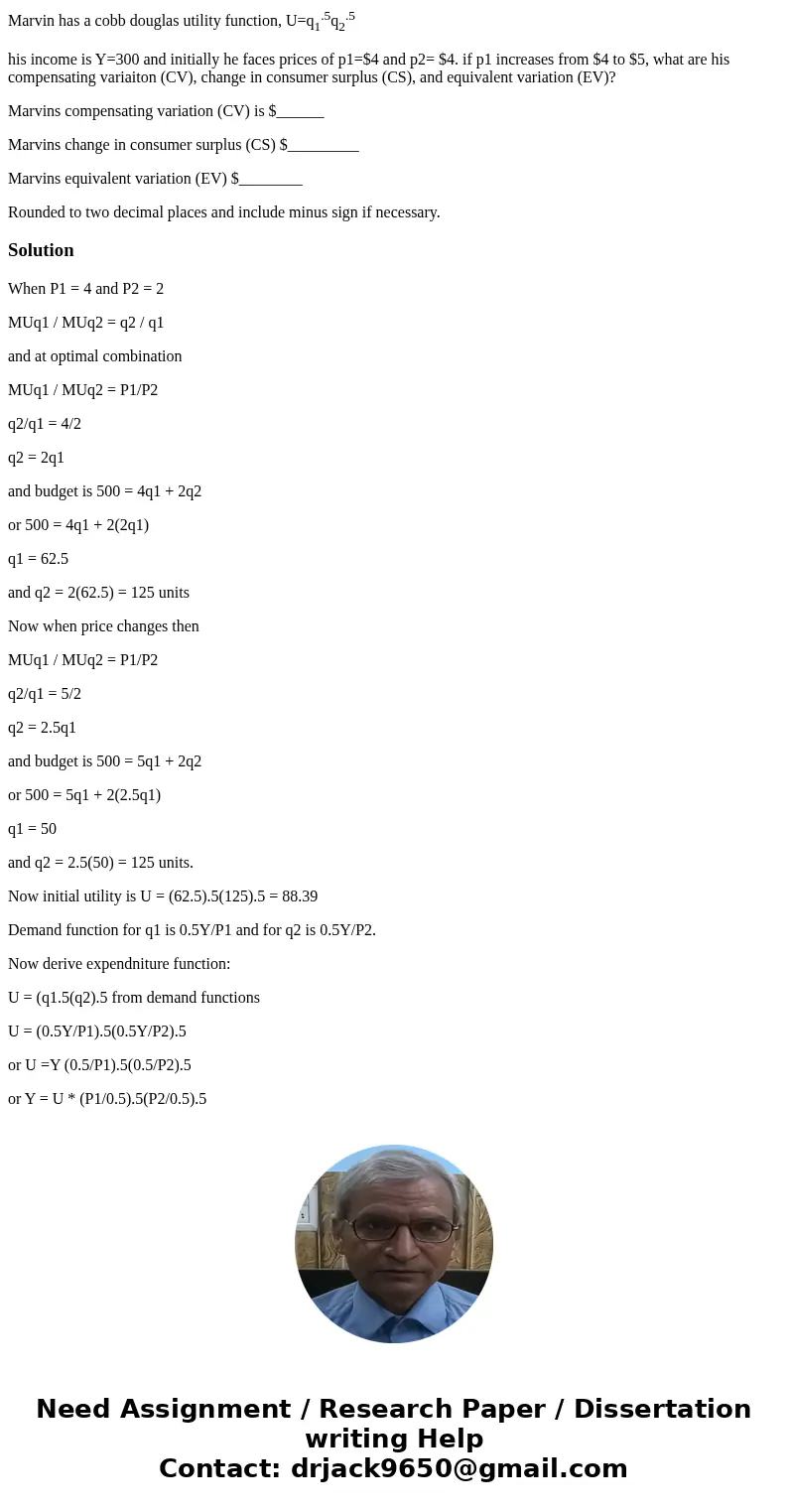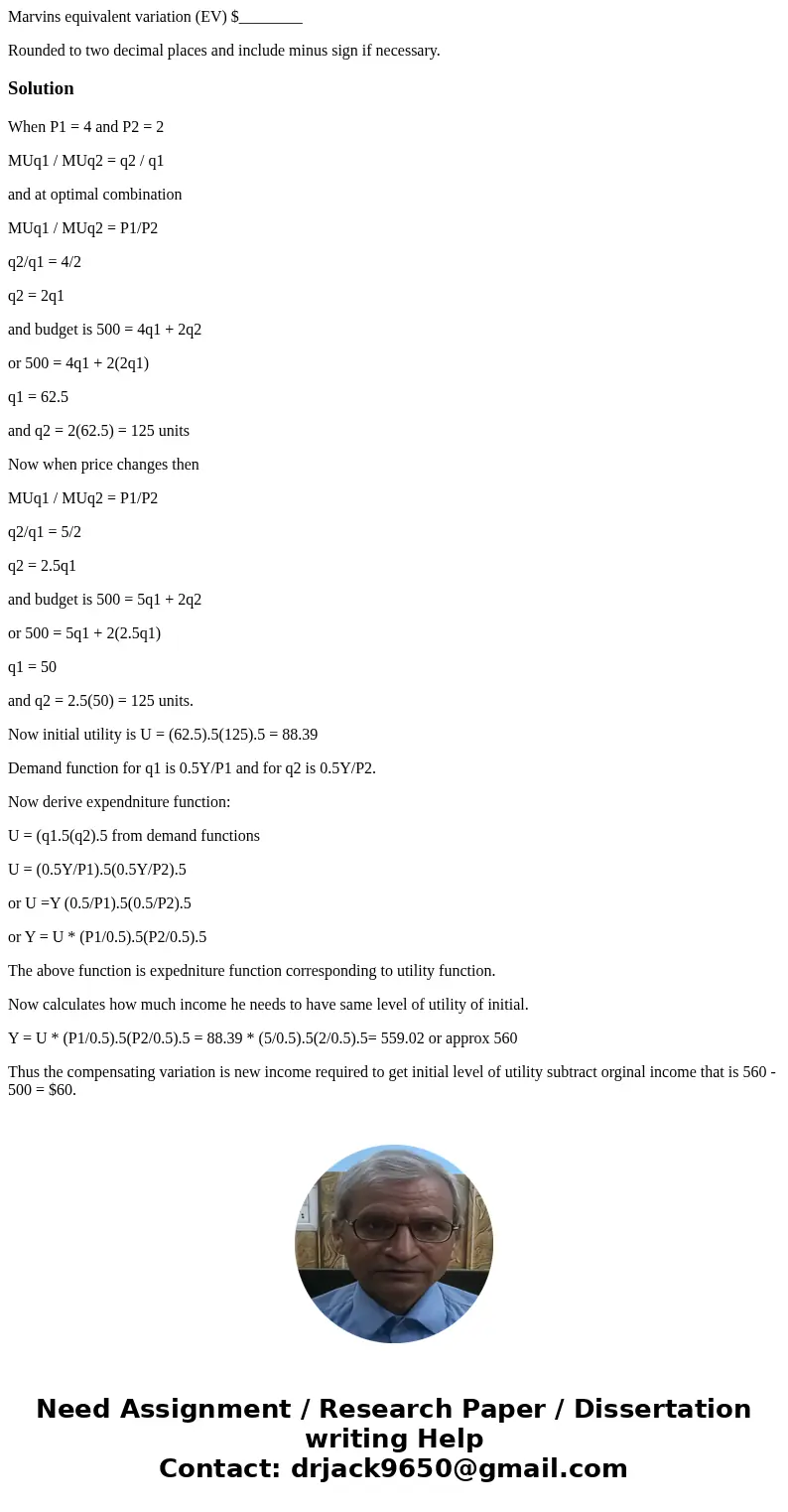Marvin has a cobb douglas utility function Uq15q25 his incom
Marvin has a cobb douglas utility function, U=q1.5q2.5
his income is Y=300 and initially he faces prices of p1=$4 and p2= $4. if p1 increases from $4 to $5, what are his compensating variaiton (CV), change in consumer surplus (CS), and equivalent variation (EV)?
Marvins compensating variation (CV) is $______
Marvins change in consumer surplus (CS) $_________
Marvins equivalent variation (EV) $________
Rounded to two decimal places and include minus sign if necessary.
Solution
When P1 = 4 and P2 = 2
MUq1 / MUq2 = q2 / q1
and at optimal combination
MUq1 / MUq2 = P1/P2
q2/q1 = 4/2
q2 = 2q1
and budget is 500 = 4q1 + 2q2
or 500 = 4q1 + 2(2q1)
q1 = 62.5
and q2 = 2(62.5) = 125 units
Now when price changes then
MUq1 / MUq2 = P1/P2
q2/q1 = 5/2
q2 = 2.5q1
and budget is 500 = 5q1 + 2q2
or 500 = 5q1 + 2(2.5q1)
q1 = 50
and q2 = 2.5(50) = 125 units.
Now initial utility is U = (62.5).5(125).5 = 88.39
Demand function for q1 is 0.5Y/P1 and for q2 is 0.5Y/P2.
Now derive expendniture function:
U = (q1.5(q2).5 from demand functions
U = (0.5Y/P1).5(0.5Y/P2).5
or U =Y (0.5/P1).5(0.5/P2).5
or Y = U * (P1/0.5).5(P2/0.5).5
The above function is expedniture function corresponding to utility function.
Now calculates how much income he needs to have same level of utility of initial.
Y = U * (P1/0.5).5(P2/0.5).5 = 88.39 * (5/0.5).5(2/0.5).5= 559.02 or approx 560
Thus the compensating variation is new income required to get initial level of utility subtract orginal income that is 560 - 500 = $60.


 Homework Sourse
Homework Sourse